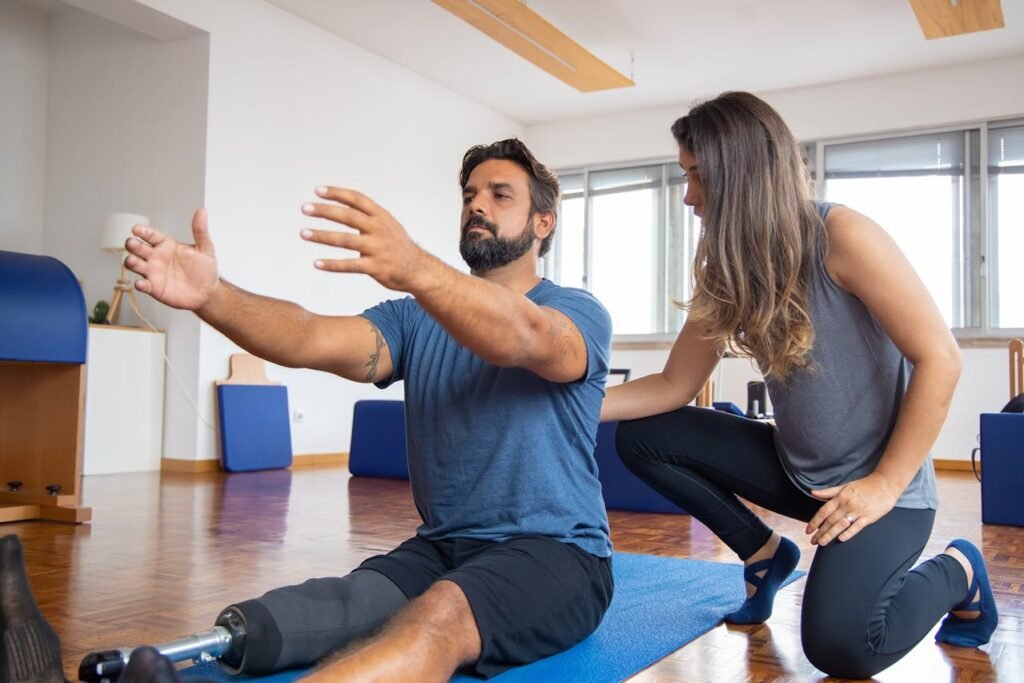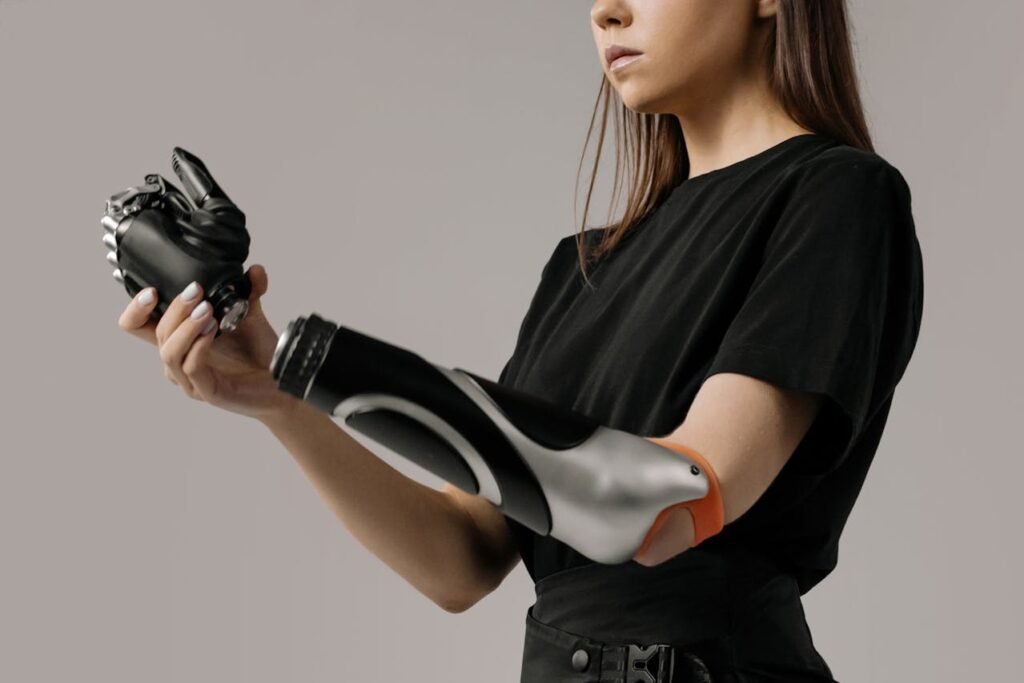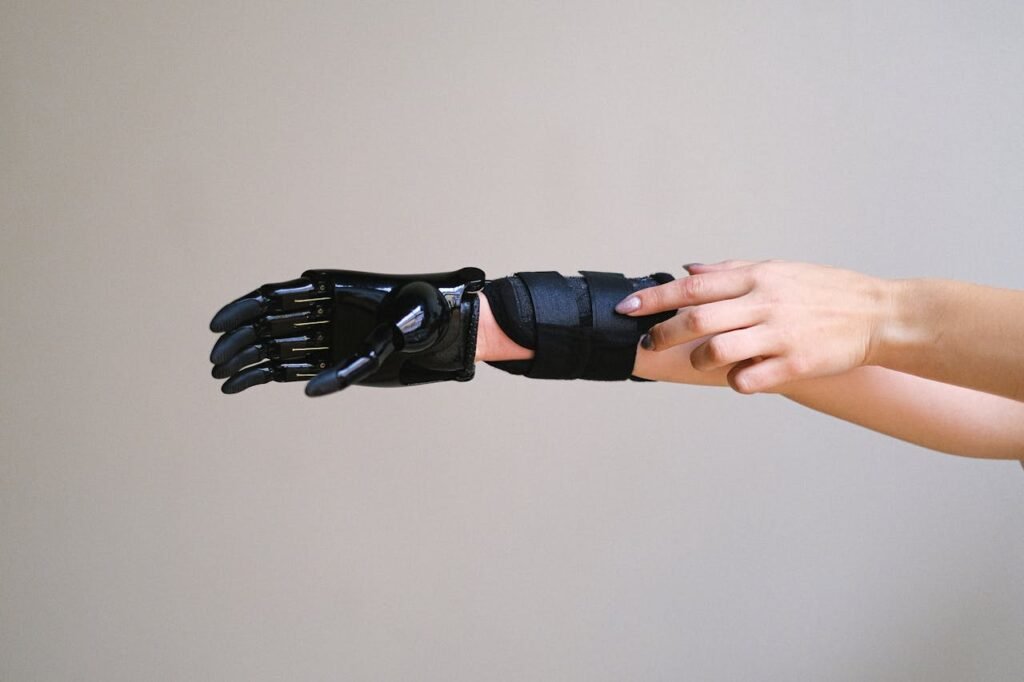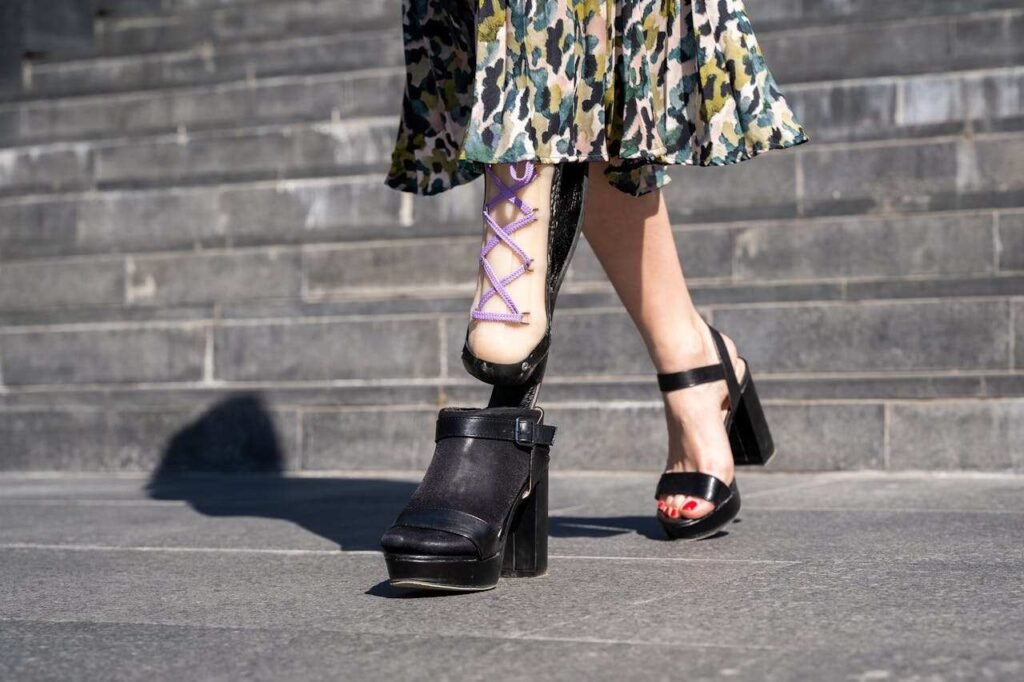Living with a prosthetic in a coastal city like Kochi brings its own set of challenges. The air is warm and humid. The sweat doesn’t dry fast. And if you’re wearing a limb all day, that sticky feeling can make things worse.
But the good news is—there are simple ways to make prosthetic life easier in a city like this. With the right care, smart materials, and a good support team, you can stay active, stay comfortable, and enjoy your day without worry.
This guide is made to help you do just that. It’s written for people who live in Kochi or nearby towns, and who want real answers about prosthetic care in coastal weather. We’ll talk about how sweat affects prosthetics, how to keep your skin safe, what kind of liners work best, and where to find expert support in Kerala.
Let’s begin.
Living with a Prosthetic in Kochi’s Coastal Climate
Why the Weather Matters

Kochi has a tropical climate—hot, humid, and full of moisture in the air. That’s great for beaches and coconut trees, but not so great when you’re wearing a prosthetic all day.
Humidity causes sweat to build up fast. And when sweat gets trapped inside your prosthetic socket, it can make the skin itchy, damp, or even painful.
Over time, this can lead to rashes, sores, or skin breakdown. For someone using a prosthetic every day, that can be exhausting.
That’s why it’s important to understand how the weather in Kochi affects your limb—and how to stay one step ahead.
How Sweat Affects Prosthetic Comfort
When you wear a prosthetic, especially for the leg or arm, the device sits tightly against your skin.
In Kochi’s warm weather, your body naturally sweats to cool down. But that sweat gets trapped inside the socket.
When moisture stays inside too long, your skin becomes soft and more likely to break. It can also cause rubbing and friction inside the liner, making small movements feel painful.
For bionic users, like those wearing the Grippy™ Bionic Hand, sweat near the sensor points can also reduce signal accuracy. That means your hand may not respond as well.
All of this makes sweat control a top priority for prosthetic users in coastal cities like Kochi.
Common Skin Problems in Humid Climates
Let’s talk about some skin problems users in Kochi face.
One common issue is heat rash. It looks like small red bumps and usually appears on the skin under the socket. It feels itchy and becomes worse with every hour of wear.
Another issue is fungal infections. Moisture under a warm socket creates the perfect place for fungus to grow. This can cause burning, peeling, and discomfort.
Blisters are also common. They usually happen when sweat makes the liner slide around slightly, creating friction points.
The good news? All of these can be managed—and often prevented—with the right care.
Choosing the Right Liner for Humid Weather
The liner is the soft inner layer between your skin and the hard socket. It’s the first line of defense against heat and sweat.
In coastal cities, the type of liner you use can make a huge difference.
Silicone liners are popular because they grip well and provide cushion. But they can get hot in humid weather.
Gel liners feel cooler and softer but may collect more moisture.
Fabric-lined or perforated liners allow better airflow. These are often preferred by users in Kochi because they help the skin breathe.
If you’re not sure which one is best, ask your prosthetist to let you try a few types before making a choice. A small change in liner material can improve comfort more than you’d expect.
At Robobionics, we’ve helped several users in Kerala switch to liners that better suit the climate—and they’ve noticed big improvements in comfort.
How to Reduce Sweat During Daily Use
You can’t stop your body from sweating—that’s natural. But you can reduce how much it affects your prosthetic use.
Start by keeping your skin clean and dry before putting on the prosthetic. Use a mild, non-greasy powder (like baby powder) if your doctor allows it. This helps absorb moisture.
Change your liner or sock more than once a day if you sweat a lot. Keeping a spare in your bag can help when you’re out.
If you’re using a myoelectric limb like Grippy™, clean the sensor area gently with a cloth during the day if it gets sweaty.
At night, wash the liner and let it dry fully before the next use. A wet liner in the morning is a recipe for skin trouble.
Finally, avoid using lotions, oils, or creams under the socket unless your prosthetist tells you it’s okay. These can trap more heat and make sweating worse.
Real Tips from Kochi Users
Many users in Kochi have shared their own simple tricks to stay cool and dry.
Some keep small cooling packs in their bag and place them near the residual limb during breaks.
Others use breathable cotton sleeves over the liner to wick away moisture.
One user even keeps a mini fan near their work desk to keep air flowing around the socket.
These small changes, when done daily, make a big difference.
The Importance of Regular Checkups
When you live in a warm, humid place like Kochi, your prosthetic needs more regular care—not just the device, but your skin too.
Plan a checkup every few months with your clinic, even if nothing feels wrong. A trained prosthetist can spot signs of wear, infection, or socket loosening before they become serious.
If you ever notice a sore that doesn’t heal, redness that spreads, or burning after wearing your limb, don’t wait. Get it checked right away.
The earlier you act, the easier it is to treat.
Cleaning and Caring for Your Prosthetic in Kochi’s Climate
Why Coastal Environments Demand Extra Care

Prosthetic limbs are strong—but they still need care. In coastal areas like Kochi, the high moisture in the air, salt from sea breeze, and constant sweating can slowly wear down even the best-made prosthetics.
If not cleaned or maintained regularly, small problems build up. A little moisture today can become mold, rust, or loose fittings tomorrow.
And because many users in Kochi wear their prosthetics all day—while traveling, working, or walking through busy markets—the device goes through more wear and tear than you might think.
That’s why daily care is not optional. It’s essential.
How to Clean Your Prosthetic Safely Every Day
Start with the basics. Every night before bed, remove your prosthetic limb and check both the inside and outside for any signs of moisture or dirt.
If you’re using a bionic device like Grippy™, gently clean the surface and the socket with a soft, dry cloth. For parts that touch the skin directly, use a slightly damp cloth followed by a dry one.
Don’t soak the prosthetic. Never rinse it under running water unless your device is waterproof—and most are not.
Let everything dry fully before putting it away. If the socket feels wet or smells damp the next morning, it means moisture has built up and needs to be cleared.
Wash your liners every evening using mild soap and lukewarm water. Rinse well and leave them to dry naturally overnight—away from direct sunlight.
Avoid using alcohol-based cleaners, bleach, or harsh chemicals. These may damage the materials and shorten the life of your prosthetic.
Dealing with Salt in the Air
One challenge unique to coastal cities is the salt content in the air. Salt doesn’t just affect electronics—it can also build up on metal parts and cause rust.
If you live near the beach or often visit the shoreline, wipe down your prosthetic more frequently—especially the joints, fasteners, and socket edges.
Some users apply a very light layer of approved protective oil on metal parts, but only do this if your prosthetist recommends it. Too much oil or the wrong kind can make things worse.
And if you notice tiny brown spots on screws or hinges, bring your limb in for a service check. Catching rust early can save you a lot of trouble later.
Signs That Your Prosthetic Needs Attention
Living in a warm and humid climate means your prosthetic will face extra pressure. But how do you know if it’s time to get it checked?
Here are a few signs:
- Your limb feels looser than usual
- You hear clicking, rubbing, or squeaking sounds
- The liner doesn’t stay in place or keeps folding
- You notice skin irritation even after cleaning
- The bionic hand isn’t responding smoothly
- Sensors don’t pick up your movements as well
- Battery drains faster than it used to
These are not things you should ignore. Even if the limb still “works,” it’s better to get small problems fixed before they grow.
At Robobionics, we recommend a full device check every 3 to 6 months—especially for users living in cities like Kochi, where weather conditions affect prosthetic life more quickly.
Where to Get Help in Kochi
If you need repairs, adjustments, or new fittings, Kochi has several centers offering prosthetic services. But not all of them are equipped for fast, high-quality work.
Look for certified clinics that have in-house repair labs, proper drying and scanning equipment, and technicians trained to work with advanced devices like Grippy™.
These centers can help with everything—from socket reshaping and liner replacement to sensor recalibration and motor repairs.
Robobionics has partnered with clinics in and around Kochi to provide demo sessions, repairs, and ongoing care for all Grippy™ users. These clinics follow strict hygiene, safety, and support protocols so you always get reliable service.
You can find the nearest center or book a demo here:
https://www.robobionics.in/bookdemo
If you’re unsure which center is best for you, we’ll guide you step-by-step.
Emergency Support and Quick Fixes
We understand that some problems can’t wait—especially if your prosthetic is your main way to walk, work, or carry things.
That’s why some Robobionics clinics in Kochi offer same-day service windows. You can call ahead, explain the issue, and get a slot to skip the regular queue.
If the problem is minor—like a strap issue, a battery replacement, or liner discomfort—many fixes can be done within an hour.
And for users who can’t travel easily, we offer remote video support. A technician can guide you through basic checks, cleaning steps, or part changes on a video call.
In some cases, we can also send a home-visit technician to pick up your device for servicing.
It’s all about making sure your life isn’t interrupted—because we know how much you rely on your prosthetic every day.
Choosing the Right Prosthetic for Kochi’s Weather
Why Climate-Friendly Design Matters

Choosing a prosthetic isn’t just about getting the most advanced or the most affordable one. Where you live plays a huge role in what kind of device will suit you best.
In a city like Kochi, the heat, moisture, and salt in the air can create a different set of challenges for prosthetic users.
A prosthetic that works well in Delhi or Bengaluru might not feel the same here.
That’s why it’s important to choose a device designed for your climate—and not just for your budget or condition.
A limb that’s lighter, better ventilated, sweat-friendly, and easy to clean will serve you better every single day in Kochi’s environment.
Key Features to Look For
If you’re getting fitted for a prosthetic for the first time, or thinking of upgrading your current one, there are certain features you should keep in mind.
Weight matters more than you think. The heavier your prosthetic, the hotter you’ll feel, and the more you’ll sweat. A lightweight device means less strain, especially when temperatures rise.
Ventilation in the socket or liner helps with airflow. Some newer models have small channels that allow heat and moisture to escape faster. If your liner always feels soaked, it might be time to explore this.
Materials should be weather-compatible. Avoid metals that rust easily or foams that absorb too much sweat. Modern prosthetics use carbon fiber, breathable fabrics, and non-reactive silicone.
Sensor reliability is crucial if you’re using a bionic device like Grippy™. Look for hands that continue to respond well even with slight moisture on the skin.
Most importantly, the prosthetic should be easy to clean. You shouldn’t have to struggle with screws, wires, or hard-to-reach areas just to keep your device fresh.
Robobionics designed the Grippy™ Bionic Hand with all of this in mind. It’s one of the few Indian-made bionic hands that’s light, responsive in humid conditions, and uses sweat-resistant contact points to ensure smooth muscle signal flow.
First-Time Users: What to Expect and How to Choose
If you’re a first-time user, the process of choosing a prosthetic can feel overwhelming. But it doesn’t have to be.
Start with your lifestyle. What do you need the limb for? Is it for walking? Typing? Cooking? Driving?
Your daily tasks should guide your decision more than anything else.
If you’re looking for a leg prosthetic and live in a hilly or uneven area near Kochi, you might need more joint support and grip.
If you’re looking for a hand prosthetic and work with small tools or mobile devices, a bionic option with grip control—like Grippy™—will help.
It’s also okay to start simple. Many first-time users begin with a mechanical or cosmetic limb to get used to the feeling. Later, they upgrade to something more functional.
The key is choosing something that makes you feel safe, steady, and ready to move again.
In Kochi, Robobionics offers trial fittings for first-time users, so you can try a device before committing. This helps remove fear and builds trust early in the journey.
Upgrading Your Existing Prosthetic
Many users in Kochi are already using basic or mechanical limbs and wonder if it’s time to upgrade.
Here are a few signs that it might be:
- Your current limb feels too heavy, especially during hot days
- You get frequent rashes or discomfort due to poor airflow
- Your activities have increased, and your limb can’t keep up
- You need finer control for work, school, or hobbies
- You’re constantly going back for repairs or fittings
- If any of these feel familiar, you may benefit from a newer, more climate-smart design.
Upgrading doesn’t mean starting over. In most cases, only the key parts—like the socket, joint, or control system—are replaced. Your body is already used to wearing the limb, which makes the transition smoother.
Robobionics users in Kerala who upgraded from mechanical to bionic hands have shared powerful stories of new independence—like being able to hold a glass of water, open a door, or text on a phone with ease.
These small wins become life-changing when the device finally works with your body, not against it.
Cost vs Climate: Finding the Right Balance
It’s natural to consider cost when choosing a prosthetic. And in many places, users settle for a cheaper option simply because that’s all they can afford.
But in a place like Kochi, choosing based only on price can backfire.
A lower-cost prosthetic may seem like a good deal, but if it causes skin damage, needs constant repairs, or wears down quickly due to moisture, it may end up costing more in the long run.
Instead, focus on value. A prosthetic that’s a little more expensive but lasts longer, feels better, and reduces skin problems is a smarter investment.
Robobionics created pricing models and EMI plans for this very reason. We want users to choose what suits their climate and comfort—without feeling pushed toward the cheapest or the flashiest option.
And if you’re unsure, you can always book a free consultation. Our team in Kochi will walk you through the pros and cons of each option, with no pressure to buy.
Our job is to help you choose well, not sell fast.
How Robobionics Supports Prosthetic Users in Kerala
Made in India, Built for Your Life

At Robobionics, we believe that prosthetics should do more than just fill a space. They should give you your life back. They should help you move with comfort, feel in control again, and live with pride.
We also believe that where you live matters. That’s why we design our prosthetics—not for global labs, but for Indian streets, Indian homes, and Indian weather.
In a city like Kochi, that means creating prosthetic solutions that stay cool, resist sweat, and handle the challenges of humidity and heat.
Our flagship product, the Grippy™ Bionic Hand, was built with all of this in mind. It responds to your muscle signals. It lets you grip things naturally. And it stays responsive—even when you’ve had a long, sweaty day in the Kerala sun.
It’s light, easy to clean, and affordable—starting at ₹2.15 lakh with EMI options.
And the best part? You don’t have to wait months for parts or repairs. Over 90% of Grippy’s components are made in India, so service is fast and replacements are local.
Real Help, Right Here in Kochi
Robobionics has partnered with trusted clinics in and around Kochi that understand the local challenges. These clinics have trained professionals who are ready to help with everything—from fittings and trials to follow-up care and repairs.
If you’re a new user, you can book a free demo session. We’ll show you how the device works, answer your questions, and help you figure out what fits your lifestyle.
If you already have a prosthetic but want to upgrade, we can assess your current fit, talk through your goals, and show you options that are better for Kochi’s climate.
And if you’re someone who’s struggled with liners, sweat, or socket discomfort in the past, we’ll work with you to fix those issues for good.
We don’t believe in one-size-fits-all. Every user deserves a solution that’s made for them.
Support That Doesn’t Stop After Fitting
For us, care doesn’t end when the prosthetic is delivered. In fact, that’s just the beginning.
We offer ongoing support for every Robobionics user—through phone check-ins, in-person adjustments, and fast repairs when you need them.
If something feels off, we don’t ask you to explain it in technical terms. We just listen. We know your limb is part of your life. And we treat it with that level of respect.
Many of our users in Kerala have shared how much they appreciate our aftercare. One user in Thrissur said it best: “I came for a hand. I left with a team.”
That’s the kind of relationship we want to build with you.
Taking That First Step
You don’t need to know everything. You don’t need to be brave or strong all the time. You just need to take one step.
If you’re thinking about getting your first prosthetic, or upgrading to something that works better in Kochi’s climate, we’re here to guide you.
You can book a free demo session or consultation right now:
https://www.robobionics.in/bookdemo
There’s no pressure to decide right away. Just come, ask your questions, and try the device. We’ll take care of the rest.
And if you’re not in Kochi but live in nearby towns—like Aluva, Thrippunithura, or Kottayam—we’ll help you find the nearest support center or arrange a video consultation.
We believe care should come to you, not the other way around.
Final Thoughts
Living in Kochi with a prosthetic doesn’t have to be a struggle. With the right support, the right design, and a team that understands what you’re going through, you can move through life with comfort and confidence.
At Robobionics, we’ve helped hundreds of users across India regain their freedom. And we’re ready to help you too.
Whether you’re sweating through the summer, walking near the backwaters, or just trying to get through your workday—your prosthetic should support you, not slow you down.
Let us help you find that perfect fit.
Book your free demo or consultation now:
https://www.robobionics.in/bookdemo
We’re ready when you are.



